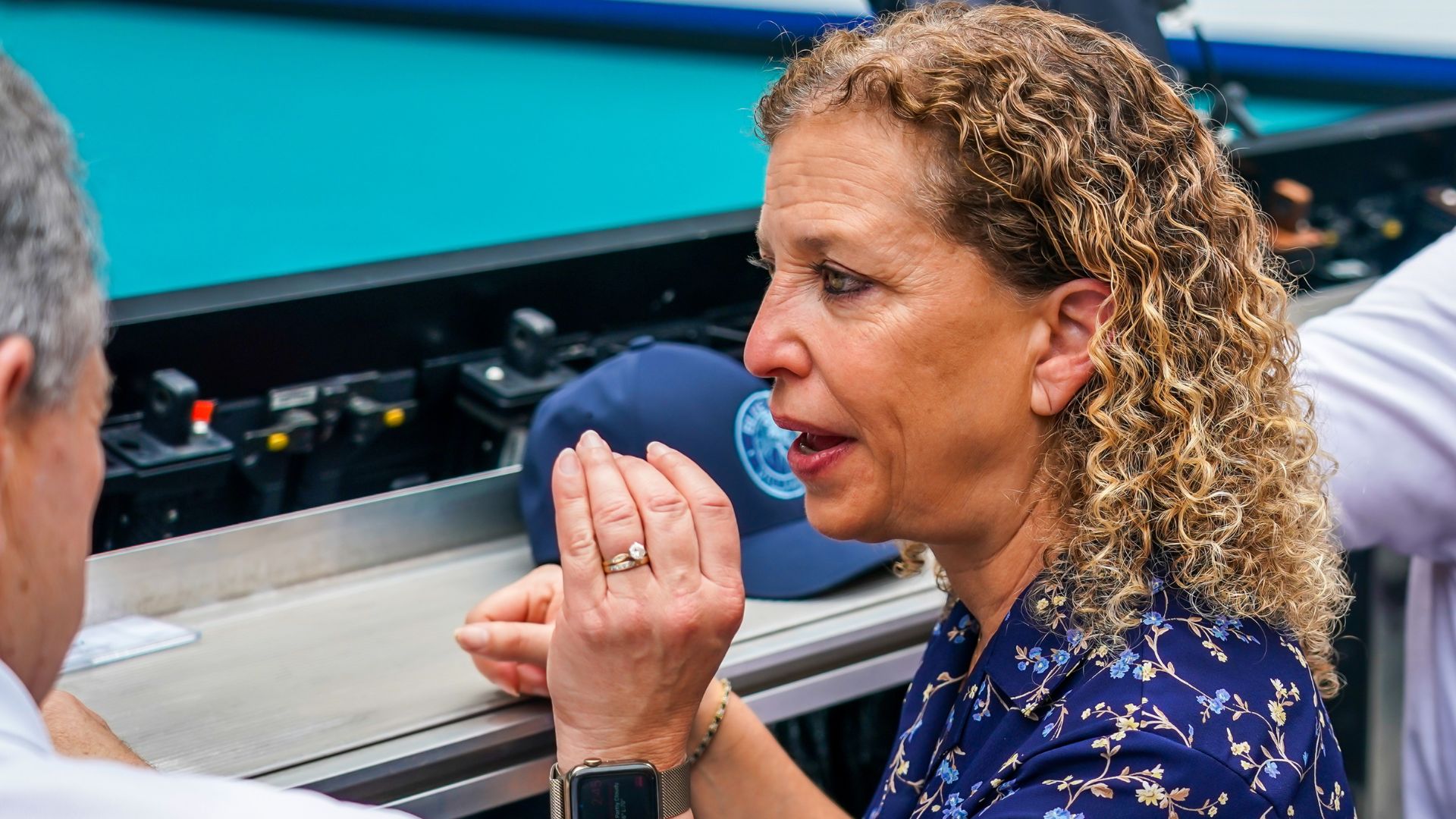
Democrat Rep. Debbie Wasserman Schultz of Florida pushed back sharply against CNN anchor John Berman during a live interview on Tuesday when asked about voters’ increasingly negative perceptions of the Democratic Party.
The exchange followed reporting from The New York Times that cited analysis from Democrat messaging strategist Anat Shenker-Osorio, who conducted focus groups with swing voters.
According to Shenker-Osorio, roughly 250 focus groups revealed that participants frequently described the Democratic Party using terms like “tortoises,” “sloths,” and “deer in the headlights,” in contrast to Republicans, who were labeled “apex predators” such as “lions, tigers, and sharks.”
Trump’s Sovereign Wealth Fund: What Could It Mean For Your Money?
Berman posed the question during the segment, quoting the focus group feedback: “‘Republicans are seen as apex predators, like lions, tigers and sharks—beasts that take what they want when they want it. Democrats are typically tagged as tortoises, slugs or sloths: slow, plodding, passive.’
Later, there was a responder that said the Democrats are like ‘deer in headlights.’ How is it that you think that the Democratic Party has earned these descriptions?”
Wasserman Schultz, appearing visibly irritated, dismissed the premise of the question.
“John, I am not focused on the animals that some New York Times reporter compares the political parties to,” she said.
“My constituents are human beings, and the human beings that I represent are facing devastating healthcare cuts. The most significant healthcare cuts that have ever been handed down by any administration. Almost 14 million people will lose their Medicaid coverage, many hundreds of thousands more, when you add the cuts to the Affordable Care Act.”
This Could Be the Most Important Video Gun Owners Watch All Year
As Berman clarified that the animal comparisons were drawn directly from voter responses, not a reporter’s own characterizations, Schultz remained unconvinced and labeled the entire line of questioning “ridiculous.”
“John, you said they were asked to compare the parties so they were prompted to compare the parties to animals. That is ridiculous,” she said.
“I’ve watched a lot of focus groups and I know the people that I represent want me fighting for the humans, the families that I represent.”
The tense exchange reflects a broader challenge facing Democrats following their 2024 election losses.
A March poll from NBC News showed just 27% of respondents held a favorable view of the Democrat Party—the lowest recorded rating since 1990.
A separate CNN poll from the same month found Democrats’ favorability at 29%, the party’s worst showing since 1992.
The 2024 election marked a significant shift in voter behavior.
For the first time in two decades, Democrats lost the popular vote, and they lost the Hispanic male vote for the first time ever.
President Donald Trump secured 55% of support among Latino men, according to exit polling conducted by NBC News.
Polls throughout the 2024 campaign cycle consistently found that voters trusted Trump and Republican leadership more than Democrats on the key issues of the election: the economy and immigration.
With former Vice President Kamala Harris losing to Trump, the party’s future leadership remains uncertain.
CNN senior data reporter Harry Enten reported on May 16 that Trump’s approval ratings have rebounded significantly throughout May, following a temporary dip in April.
The approval boost follows a trend of growing voter confidence in Republican leadership.
Connect with Vetted Off-Duty Cops to Instantly Fulfill Your Security Needs

![Dem Rep Loses It on CNN When Confronted with Voters Calling Her Party 'Slow' [WATCH]](https://www.right2024.com/wp-content/uploads/2025/05/Dem-Rep-Loses-It-on-CNN-When-Confronted-with-Voters-750x375.jpg)
![Tulsi Gabbard Calls for Arrest of James Comey Over Call to Assassinate Trump [WATCH]](https://www.right2024.com/wp-content/uploads/2025/05/Tulsi-Gabbard-Calls-for-Arrest-of-James-Comey-Over-Call-350x250.jpg)

![Declaration Gaffe, Whisper Creep, and Conflicting Cancer Claims [WATCH]](https://www.right2024.com/wp-content/uploads/2025/05/Declaration-Gaffe-Whisper-Creep-and-Conflicting-Cancer-Claims-WATCH-350x250.jpg)


![Trump Drops Bombshell Video Linking Clintons to Mysterious Deaths [WATCH]](https://www.right2024.com/wp-content/uploads/2025/05/Trump-Drops-Bombshell-Video-Linking-Clintons-to-Mysterious-Deaths-WATCH-350x250.jpg)


![Bessent Exposes Media Lies About April’s Stock Market Performance [WATCH]](https://www.right2024.com/wp-content/uploads/2025/04/Bessent-Exposes-Media-Lies-About-Aprils-Stock-Market-Performance-WATCH-350x250.jpg)
![AZ Officer Rescues Fire Captain’s Daughter from Burning Car in Dramatic Video [WATCH]](https://www.right2024.com/wp-content/uploads/2025/05/AZ-Officer-Rescues-Fire-Captains-Daughter-from-Burning-Car-in-350x250.jpg)





